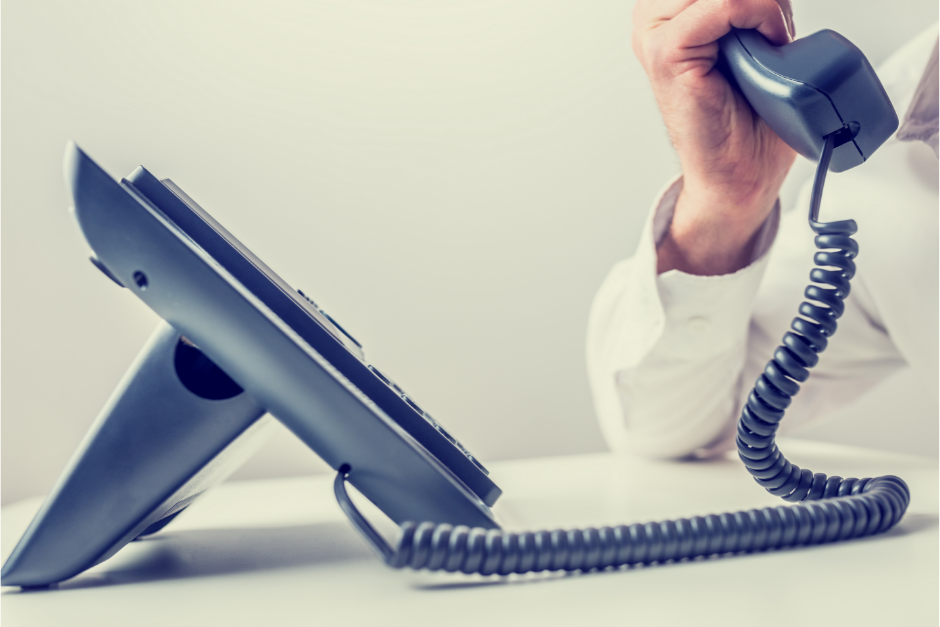What are the Major Points to Remember for Successful Call Handling?
Call handling describes how a business manages the phone calls that it receives. In other words, it refers to how a business interacts with their customers and the etiquette they use. Successful call handling leads to repeat business, happy customers, and more business growth. Poor call handling can lead to negative customer service reviews and lost opportunities.
There are a few key tips to remember for successful call handling. First is to evaluate the tone of the customer calling, and if needed, deescalate the customer’s frustration. You are more likely to succeed with the customer if he or she leaves the call feeling more relaxed than when they started. In turn, this requires the answerer to remain calm and be intelligent about the words they use. Be sure to allow the customer to fully vent and explain their issue and be understanding to their frustration. Finally, do your best to make the customer happy, but this comes with an important caveat – Don’t lie or make false promises to the customer. Be honest about what you are or aren’t able to do, or else you risk upsetting the customer all over again.

How do you Answer the Phone Professionally?
Answering the phone professionally is the first step to excellent call handling. When a customer calls, the best way to answer the phone is quickly (by the first ring if possible), and offer a greeting that introduces yourself, the business, and ends with a question such as “how can I help you today?” When speaking, speak slowly, clearly, and avoid using slang or casual phrases. It is also essential to keep a positive tone to continue sounding professional. If you have to put someone on hold or transfer the customer, let them know beforehand, and importantly, try to end the call on a positive note.
Why is it Important to Answer Calls on the First Ring?
A customer calls a business for many reasons. They could be a potential client or repeat customer who is excited about the prospect of potentially working with you and your company. They could be a customer with a concern and want to know options to resolve a matter. Or they could be an irate customer who is prepared to vent their frustration. Professional call handling is key.
When a customer calls, and the phone continues to ring and ring and ring, the emotions the customer is feeling progress, and typically it’s for the worst. The angry customer is only going to become angrier that they were left on the line. The potential new customer or repeat customer might begin to doubt the customer service abilities of your business. The level-headed customer with a concern might begin to develop unreasonable frustration. By answering the phone by the first ring, you avoid these negative changes in the caller’s emotions and create a positive customer service experience.

What are Some Important Examples of Telephone Etiquette?
There are five rules to follow when trying to maintain positive telephone etiquette and achieve more efficient call handling:
- Answer the call quickly and introduce yourself or the business
- Actively listen and ensure that the customer feels as though they are being heard
- Always let the customer know if you plan on putting them on hold or are going to transfer the call
- Use positive and cheerful language and tone.
- Stay focused and take good notes.
Anserve’s Quality Assurance Coordinator, Noelia Sarmiento emphasizes that live agents showing empathy and urgency demonstrate that they are engaged and truly concerned about good customer service. When appropriate, “Smiling shows telephone etiquette,” says Sarmiento. “It can really help set the tone for the call.” Having patience is another key to telephone etiquette. “Huffing and puffing are not acceptable,” she says.

How Can I Improve My Phone Manner?
Proper call handling is achievable for everyone and there are a few things you can do to improve your phone manner. The first place to start is to address how you talk to people on the phone. Slow down when you speak and talk clearly into the phone. Keep a level volume to your voice and avoid shouting or even whispering. Make the caller feel welcome and that you are eager to help them. One way to do this is to smile as you talk to people. Even though they cannot see your smile, that emotion is conveyed in your voice and your customer will pick up on it and feel as though they are having a great customer service experience.
How do you handle queries over the phone?
For good customer service, the key is to take good notes so that you fully understand the customer’s questions or concerns and can properly address the issue. If you must place a caller on hold to check something, keep that time as short as possible so that your customer doesn’t feel like they have been left hanging. Finally, answer the query as truthfully as possible and avoid making promises to the customer you cannot keep.
How does Anserve train their live agents in call handling?
To train new live agents, Anserve utilizes shadowing and mentorship programs. For the shadow program, the new agent sits with an experienced agent and watches how the experienced agent adapted to different callers and situations when taking calls, explains Anserve’s Quality Assurance Coordinator, Danielle Prtune. “They are trained that call handling and good customer service will determine the difference between the caller having a positive experience or a negative experience,” says Prtune. Anserve also plays experienced agents’ call recordings to demonstrate the different ways to handle calls successfully.
Anserve understands the benefit of a positive call handling experience and trains their live agents to answer every call with these tips in mind. We train every live agent to listen attentively, stay polite and positive, take good notes to share with you, and achieve the best customer service experience for your clients as possible. To learn more about Anserve’ live agent services, contact us today.

Director of Business Development
With over 25 years of experience, Peter oversees the marketing, sales and account management for Anserve. He is an expert in customer service and strategic business growth, leveraging his knowledge to help businesses optimize revenue using efficient procedures.


